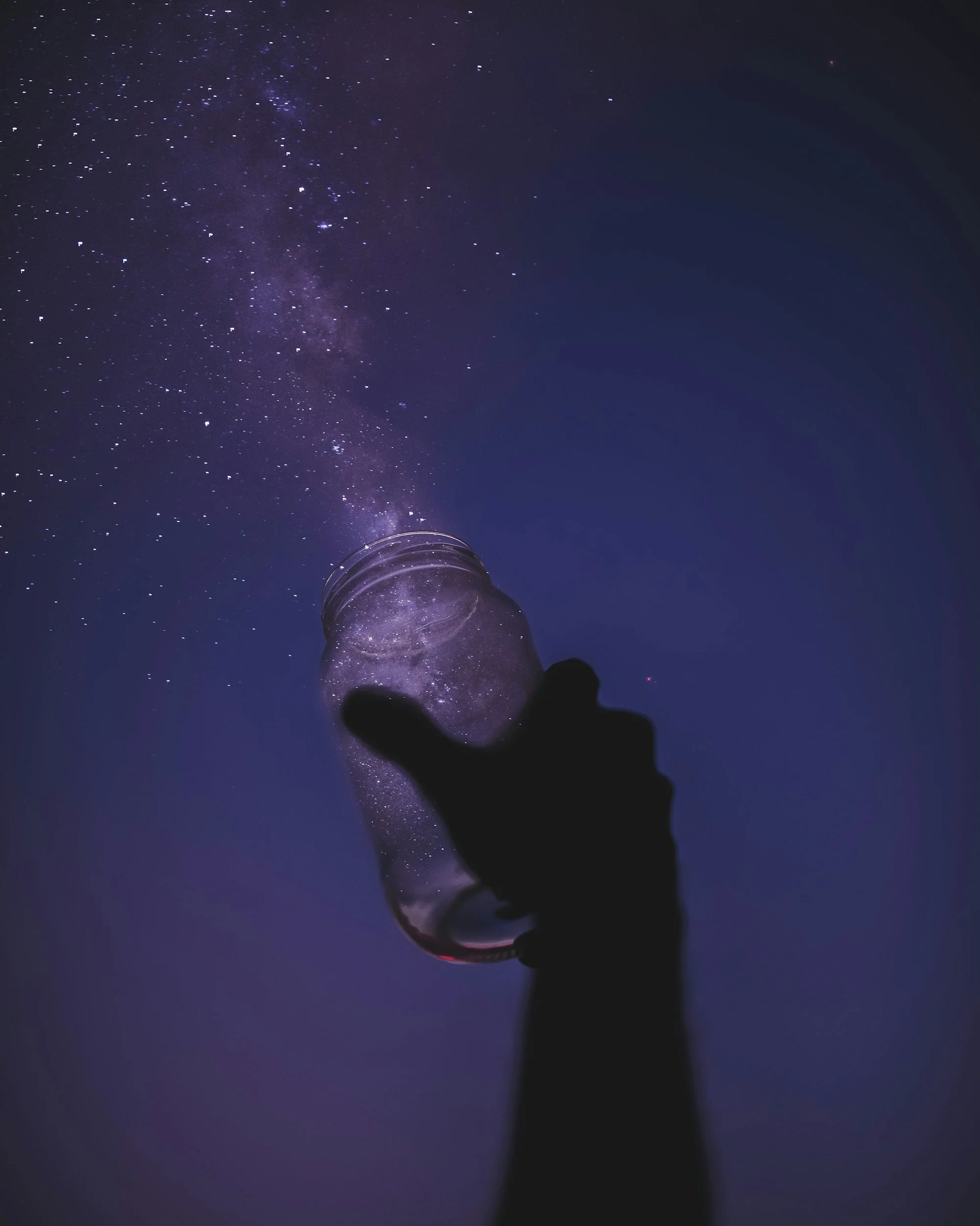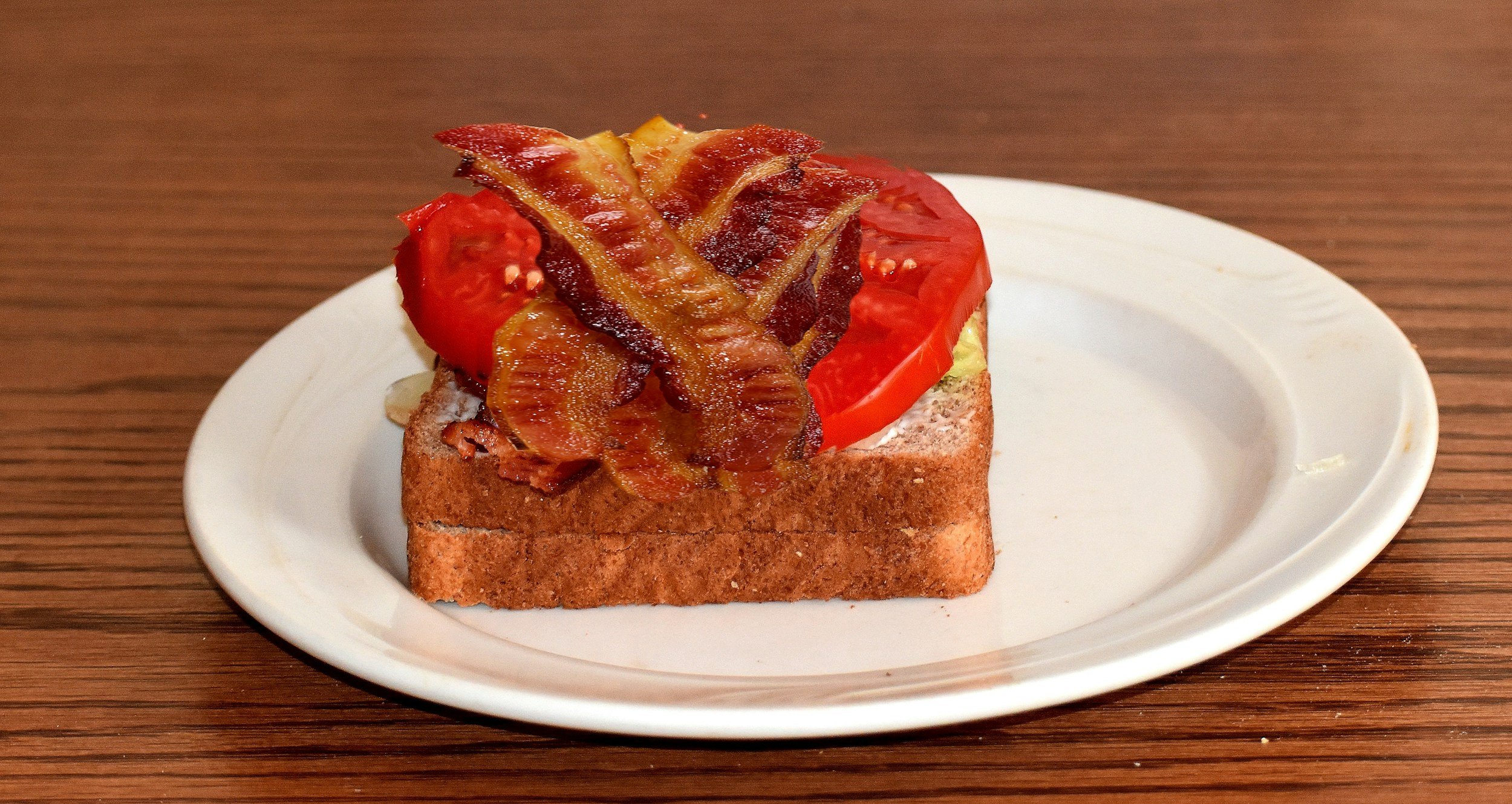The Sandbar Girls
On a clear late summer afternoon along North Carolina’s Outer Banks, Sandbar slid off its foundation and washed into the Atlantic Ocean, the footage so dramatic, it went viral on social media and made the national news. The house was now called Dolphin’s Point, but for my friends and me, it would always be Sandbar. I thought about how the owners must have felt watching something they loved drift away from them, as they stood helpless, knowing they would never see it again.
Sandbar’s destruction was sudden and yet, almost peaceful. A dog can be heard barking in the background along with oh, wows, and look at thats emanating from the small crowd gathered to watch. A storm passed through days before, once again battering this tiny strip of Hatteras Island, flooding Route 12 and nudging the land a little further along on its westward journey. It was as if the house decided it had had enough, took a deep breath and gently eased out into the ocean, like pushing off the edge of a swimming pool, leaving pieces of itself buried in the sand and water near the shore long after the salvage service removed the debris field of rubble scattered across the beach.
Sandbar was the first house we rented when we started going to the Outer Banks back in the nineties. We had all read Anne Rivers Siddons’ Outer Banks and decided this was where we wanted to go. We were finally grown-ups, planning and paying for our own vacation without the involvement of a man or a parent.
The four of us met singing in a chamber choir when we were in our thirties, kindred spirits because we were all single and childless. When we were together, no one nursed an infant or shared graphic delivery room stories. Our conversations went uninterrupted by a squalling toddler, and we could sip cocktails without feeling guilty about anyone abstaining due to pregnancy. Parenthood was a club for which we appeared destined for permanent exclusion, so we banded together like refugees. Not having birthed a child creates strange bedfellows, and we forged a deep and lasting friendship.
Caron ran an inner-city preschool and was the ultimate caregiver, slightly formidable and conscientious to a fault. Her marriage to an emotionally abusive man came and went in less than a year, like a blip on the radar. Caron proclaimed that whatever happened to her was God’s will and a blessing. Her widowed and embittered father taught her she was unworthy of anything better than what she was given, and she had no business asking for more.
Beautiful and kind, Kelly was a public-school librarian. She had a serious relationship before we knew her, but never told us why it ended. Kelly did the shitty jobs school administrators foisted on her, chairing book fairs and fund-raisers because, “You’re single and you have the time.” The only girl among three brothers, Kelly doted on her nieces and nephews, faithfully attending the birthday parties, soccer games, and school concerts. When Kelly’s parents died in their sixties within several months of each other, a part of her died with them.
Ten years younger, Deb was the little sister we indulged—on the surface, at least, a picture of Catholic girl innocence. We’d roll our eyes when she appeared for an evening out dressed in her Land’s End sweater set and pearls, with a leather purse slung over her forearm like June Cleaver. White gloves would not have been out of the question. In our quartet of modern day Little Women, Deb was the virginal and tragic Beth.
The youngest of five children, Deb was the baby bird sheltered long past fledgling stage. Her family of hard-drinking, angry-at-the world Catholics was awed by her, as though she were some kind of rare and fragile species to be handled with the utmost care. She never drove a car until she had to student teach. Never bought a house or her own groceries or crawled out of some guy’s bed wondering how she got there.
Whip-smart, Deb went off to Penn State and came right back home to teach fifth grade in the local Catholic school and work in the town library. Her soprano voice could make the angels weep, she knew the lyrics to every Broadway show from the last thirty years and possessed a vocabulary of truly spectacular profanity. We were headed somewhere on back roads one night when she piped up with “My God, where are we? This looks like the middle of butt-fucked Egypt.”
I had recently divorced my husband of thirteen years after he decided he’d rather have a girlfriend than a baby. As a result, I was the jaded one who made snide remarks while everyone else sobbed at sentimental movies. Deb and I bonded as the bad girls of our little group, and we constantly played off each other like the middle-schoolers we taught. I’d tease her about something, she’d respond with, “Why don’t you just bite me,” and we’d break into gales of laughter. We weren’t allowed to sit together at movies and concerts because, in Caron’s words, “you’ll talk and carry on the whole time.” Deb and I also connected over our fondness for steaming bowls of pasta and frequent use of the F-word, unlike Caron and Kelly who eschewed all things fattening and profane.
On one of our first Outer Banks trips, I drove Deb’s ill-tempered late eighties Pontiac through a blinding rainstorm on the tangle of interstate ramps outside Norfolk, Virginia. The wipers refused to move out of low speed, and I couldn’t find the hazard lights. As Deb sat in the back seat munching a rice cake and fingering her rosary beads, I asked her where the flashers were. She looked up, wiping the crumbs from her mouth, and said, “I don’t know. I never drive anywhere when it rains this hard.”
Sandbar wasn’t a fancy place. There was a hole in the bathroom door and the lights flickered if you ran the dishwasher or plugged in too many hair dryers. The bedrooms were cramped and musty and the chains holding up the porch swing were rusted to the point we were afraid to sit on it. TV reception was sketchy at best, frustrating Deb when she wanted to watch her soaps or pop-up videos.
But we loved it. With Deb as our ringleader, we reveled in being temporarily unleashed from our grown-up lives. We’d tumble into the water, shouting and laughing and when one of us got hit by a wave, Deb would sing “There’s got to be a morning after,” from the Poseidon Adventure. We built sandcastles and placed our chairs so close to the ocean that the crotch of our bathing suits filled with sand, forcing us to lumber back to the outside shower like cows with full udders. We ate and drank whatever we wanted, declaring a week-long moratorium on dietary restrictions. Late in the afternoon, I would be dispatched to the house to create frozen cocktails and bring them down to where we were sitting. Evenings, we’d go out to funky little Hatteras Island restaurants, and come back and sit on the rooftop deck, watching for falling stars and telling our stories and then retire to bedrooms on the lower floor of the house which Deb christened the beaver den.
At least once during the week, Deb got up early and drove ten miles down the coast to attend Mass. She’d bound into the house afterwards carrying grease-spotted bags of pastries called apple uglies from a tiny bakery nearby and shout, “Wake up, infidels. I brought more food!” Deb ate constantly at the beach, blaming the salt air for her raging appetite and the sudden disappearance of entire bags of snacks. She’d chomp down on something delicious, close her eyes in pleasure and say, “Mmm. Tastes like shit.”
The year Kelly and Deb decided to stay at the Outer Banks for an extra week, Deb didn’t consume her usual ration of caramel corn and whopper cookies and brought no apple uglies back from morning Mass. She complained about indigestion and feeling tired. No one gave it much thought, until we were called to Deb’s home on a Sunday night so she could tell us she had colon cancer. Seated across from us at her dining room table, she raised her middle fingers and said, “Take this, cancer. I am going to fucking beat your ass!” We believed her.
Surgery was followed by months of grueling chemo. Deb would dive deep into her treatment, disappear for a while and then re-surface, joining us for a movie or dinner out, looking a little thinner, but she was still Deb. She hated her wig and occasionally showed up beautifully bald, saying, “The hair’s staying home today. It’s just too hot.” All of us remained optimistic. Her illness was serious, but temporary—something to get past.
A year after her diagnosis, she flew to a research hospital where doctors injected medication directly into her liver because that’s where the cancer had now spread. Kelly went along on the trip with Deb’s sisters, and when she returned, the look on her face told us something had shifted. Cracks appeared in the polished surface of our optimism as the first tendrils of desperation crept into Deb’s treatment options, and she reluctantly gave up her classroom and her choir.
We celebrated Deb’s fortieth birthday with a party themed around her beloved Sound of Music, singing about how she was one of our Favorite Things and super-imposing her picture over Julie Andrews’ on the sheet music. Caron, Kelly, and I re-enacted The Lonely Goatherd, that, at Deb’s urging, we had once performed out of the sunroof of my Honda moving our fingers like little mouths while waiting for the Ocracoke ferry. All the choral singers harmonized Happy Birthday with professional expertise. I remember looking around the room at forced smiles on faces glittering with denial and false hope, while Deb sat on a pillow-covered chair holding a bottle of Ensure and nibbling tiny crumbs of cake.
We got her to the Outer Banks one last time. By then, I had re-married, another couple had joined us, and we had outgrown Sandbar. Most of that week Deb was content to just sit indoors and stare out at the ocean. The voice that effortlessly popped out high Cs, taught the Catholic faith to fifth graders, and then let loose with startlingly original profanity, weakened to a whisper. The pop-tarts and Twizzlers remained on the table, unopened.
The home we rented that year had a huge bathtub on the first floor. Deb needed what she called a “tubby” every few hours, suffering pain so intense that soaking in scalding hot water was one of the few things that temporarily relieved it. Kelly and I would ease her emaciated body into the water, while trying not to stare at the pallor of her skin and the bruising from the needles. She ate very little and slept on and off during the day, but she was up all night—talking, crying, terrified. Kelly and Caron took turns holding her, her body resting in their arms with the weight of a young child.
After we came back from dinner one evening, Deb seemed filled with energy and said, “I need to get to the beach. I need to feel the sand on my toes but I’m not sure I can make it over the dune. Let’s go down and see if Sandbar’s still there.”
We drove the few blocks down the street to Sandbar, which was even then teetering on the edge of oblivion, the space under the house where we once parked our cars now completely filled with sand. The men carried Deb up and over the dune and placed her gently on the beach, we wrapped her in sweatshirts and blankets to ward off the evening chill, and for a few moments, the old Deb was back. We told stories from our Sandbar days, reminding her about the time she peed behind a towel and ended up with mosquito bites on her butt and when she embarrassed us all by powdering her underarms while waiting for a table in a restaurant. She said, “God, don’t make me laugh. It hurts too much.” But then she beamed at us with that winsome little-girl smile, and said, “Thanks, guys. This is awesome!”
Unlike Sandbar being reclaimed by the sea, Deb’s death went against the natural order, ripping away our protective shelters and exposing the jagged foundations of our anger and fear. We shook our fists at the heavens, screaming, “Surely, there’s been a mistake?” Deb, as she would have put it, had no fucking business leaving us so soon. Watching the same men who lifted her over the dunes carry her casket down the aisle of the church five weeks later nearly destroyed us. We sang her home that day from a choir loft where an empty chair draped in white held Deb’s folder of music.
Caron and Kelly still travel to the Outer Banks with a different group of people. They go in May when the water is too cold for swimming (For me, that’s the whole point) but they don’t get in the ocean anymore so it doesn’t matter. Caron and Kelly are testy with each other. If Kelly talks about her latest travel adventure, Caron retreats into stony silence. I’m the only one married and the only one who, by choice, still sings in a choir, opening a gaping chasm of difference between us. Our relaxed intimacy has morphed into a sort of choreographed politeness as our lives have grown smaller, narrower, with caution gradually replacing exuberance. Three lacks the balance of four.
My husband and I dropped out of the Outer Banks group several years after Deb’s death. Absent the intimate proximity of the beaver den, a low-voltage, judgement-laden tension sizzled amongst the women. We no longer felt we had permission to be silly and that space filled with an ever-increasing resentment of each other’s flaws. Deb’s irrepressible joy taught us not to take ourselves, or life, too seriously, and we couldn’t figure out how to do that without her. She was our Maria, leading us on merry shenanigans with a song.
Sandbar wasn’t the first house to disappear along that constantly shrinking barrier island, nor will it be the last. Losing Deb created an empty stretch of beach in our souls that also once held a place of life and laughter. Like the debris left behind from a house swallowed by the ocean, pieces of her remain buried deeply within all of us, occasionally poking out of the water to make us stumble and falter when we least expect it, bringing us to our knees with a searing reminder of who she was and how much we loved her.
As I watched the ocean release Sandbar from its foundation, I could still picture Deb on that same stretch of beach. She’s coming back from her late afternoon walk while the rest of us lounge under the canopy reading our books, sipping lukewarm iced tea, and passing around the bag of slightly sandy Twizzlers. She’s wearing her striped Land’s End tank suit and as she draws closer, I see her mouth moving and her head bopping back and forth, undoubtedly singing.
-Anne Moul
Anne Moul is a retired music educator and lifelong choral singer from York, Pennsylvania. She has had work published in Hippocampus, The Delmarva Review, Episcopal Café, Thread, AARP’s The Girlfriend, and others, has won several awards in Pennwriters Annual Writing Contest. Her Delmarva Review piece was recently selected for a new anthology, The Best of the Delmarva Review. Anne blogs at www.secondactstories.com.








